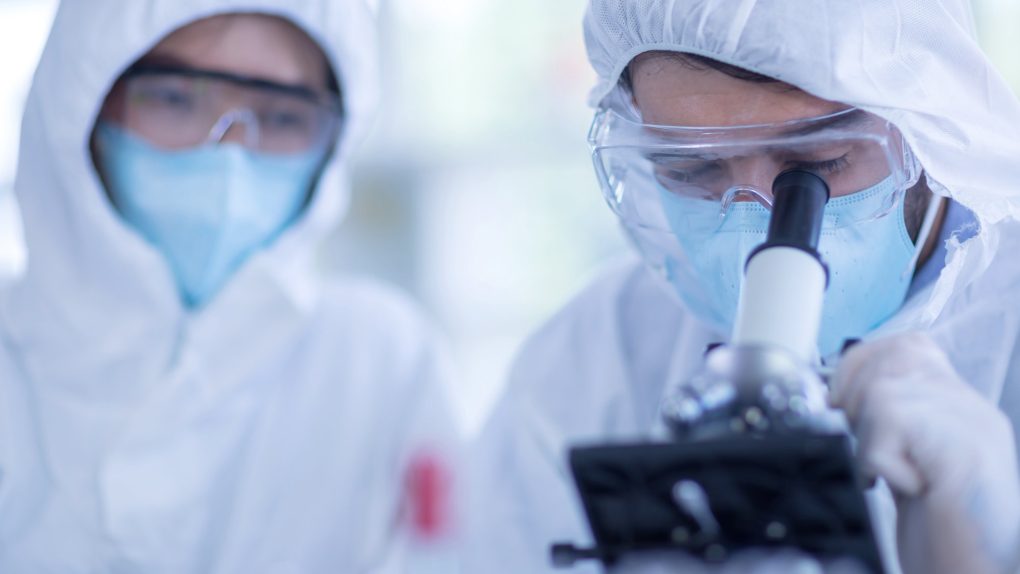- Dr. Scott Gottlieb said in an interview that the South African coronavirus mutation might evade the action of antibody drugs, citing a recent study.
- A few weeks ago, the 501.V2 mutation was observed in South Africa, becoming the dominant strain in some regions.
- British officials said earlier this week they’re more worried about the South African strain than the UK coronavirus mutation, as the former might evade vaccines.
British health officials said earlier this week that the UK coronavirus mutation the world is so worried about might not be as bad as the South African mutation. Dubbed 501.V2, the latter might evade vaccines.
Vaccines will work on the B.1.1.7 strain that’s largely responsible for the massive COVID-19 outbreak in the UK right now. Health experts like Dr. Anthony Fauci said in recent interviews that COVID-19 survivors aren’t likely to be infected with B.1.1.7, which is an indication that neutralizing antibodies and other COVID-19-specific immune cells still work against the UK mutation. That implies vaccines would also continue to be effective against the strain. BioNTech and Moderna said in statements that they believe the vaccines will work against the mutation.
Former FDA chief Dr. Scott Gottlieb said in an interview that the South African strain is indeed worrisome, going further than British officials to explain the problem. Apparently, 501.V2 can avoid antibody drugs, which isn’t good news.
“The South Africa variant is very concerning right now because it does appear that it may obviate some of our medical countermeasures, particularly the antibody drugs,” Gottlieb told CNBC The News with Shepard Smith. “Right now, that strain does appear to be prevalent in South America and Brazil, the two parts of the world, right now, that are in their summer, but also experiencing a very dense epidemic, and that’s concerning.
Gottlieb noted experimental evidence from Bloom Lab, saying that 501.V2 seems to escape prior immunity. That means people who survived COVID-19 might be reinfected with the new strain.
We mapped how all mutations to #SARSCoV2 receptor-binding domain (RBD) affect recognition by convalescent polyclonal human sera (https://t.co/fCJvAnXhs8).
Among implications: E484K (South African lineage) worrying for immune escape; RBD mutations in UK lineage less so (1/n).
— Bloom Lab (@jbloom_lab) January 5, 2021
“The new variant has mutated a part of the spike protein that our antibodies bind to, to try to clear the virus itself, so this is concerning,” Gottlieb said. “Now, the vaccine can become a backstop against these variants really getting more of a foothold here in the United States, but we need to quicken the pace of vaccination.”
“It really is a race against time trying to get more vaccine into people’s arms before these new variants become more prevalent here in the United States,” said Gottlieb.
If the 501.V2 strain can evade antibodies, then it will evade all antibodies that can bind to the spike protein of the original coronavirus strains. This includes neutralizing antibodies that the immune system produces in response to the SARS-CoV-2 infection, the neutralizing antibodies used in monoclonal drug therapies like the drug President Trump took during his bout with COVID-19, and the neutralizing antibodies that vaccines will elicit.
It’s unclear how effective vaccines will be against the South African strain, as more research will be required. Drugmakers can adapt the vaccines to address the new 501.V2 spike, but that will take some time. Even if current vaccines and antibody drugs have a lower efficacy against 501.V2, they could still provide some protection.
“The mutations that most reduce antibody binding usually occur at just a few sites in the [receptor-binding domain (RBD)]’s receptor binding motif,” Bloom Lab’s abstract reads. “The most important site is E484, where neutralization by some sera is reduced >10-fold by several mutations, including one in emerging viral lineages in South Africa and Brazil. Going forward, these serum escape maps can inform surveillance of SARS-CoV-2 evolution.”
Bloom Lab’s study is available in preprint form at this link, but the research has not been reviewed.








